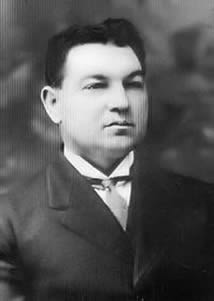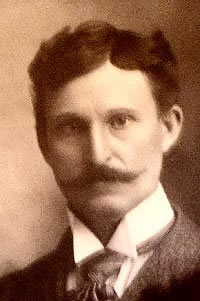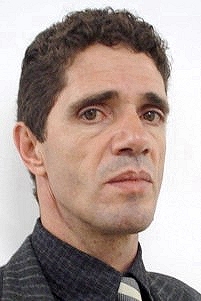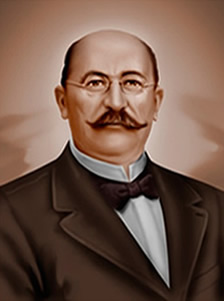Lord’s Prayer – English Lamsa Version, 1933
Oração do Pai Nosso – Versão Inglesa de Lamsa, 1933
“The Four Golpels, According to the Easrtern Version” Translated from the Aramaic
by Geo M. Lamsa, Philadelphia: A. J. Holman Co.
“The Four Golpels, de acordo com a Versão do Easrtern”, traduzido do aramaico
por Geo M. Lamsa, Filadélfia: A. J. Holman Co.
Our Father in heaven,
hallowed by thy name,
thy kingdom come.
Let thy will be done,
as in heaven, so on earth.
Give us bread for our needs from day to day.
And forgive us our offences;
As we have forgiven our offenders
And do not let us enter into temptation,
But deliver us from error.
Because thine is the kingdom and the power
And the glory for ever and ever.
Amen
Love Lifted Me
“Jesus me Transformou”
Words: James Rowe, 1912.
Music: Howard E. Smith (1863-1918). Rowe & Smith wrote this song in Saugatuck (now part of Westport), Connecticut. [ ![]() —
— ![]() —
— ![]() ].
].
→ James was Son of John Rowe, a copper miner, James worked for the Irish government for four years, then emigrated to America at age 24. He settled in Albany, New York, and worked in railroads in New York for 10 years.
He then became an inspector for the Hudson River Humane Society. He then worked for music publishers in Texas and Tennessee, and in his later years, moved to Vermont and worked with his daughter, an artist, writing verses for greeting cards. Rowe and Smith wrote this song in Saugatuck, Connecticut. According to Rowe’s daughter. Smith was a church organist in Connecticut.
→ James era filho de John Rowe. Trabalhou numa mina de cobre para o governo irlandês durante quatro anos, depois emigrou para a América aos 24 anos de idade. Instalou-se em Albany, Nova Iorque, e trabalhou na ferrovia em Nova Iorque durante 10 anos. Se tornou um inspetor pela Sociedade Humanitária Rio Hudson.
Depois disso trabalhou em editoras de música no Texas e Tennessee. Mudou-se então para Vermont e trabalhou com sua filha, um artista, escrevendo versos em cartões de visita. De acordo com a filha, Rowe e Smith escreveram esta canção em Saugatuck, Connecticut. Smith era um organista da igreja em Connecticut.
[ Translation by Ginsburg and also Literal translation by Borges see also in Cyberhymnal ]
Lançar a Semente Marchando em Retidão
Jesus me Transformou – Borges
“Love Lifted Me”
Daniel Borges – Tradução Literal
Letra: “Love Lifted me”, James Rowe, 1912. Tradução – não convencional – literal por Daniel Borges, 2010.
Música: Howard E. Smith, (1863-1918). [ ![]() —
— ![]() —
— ![]() ].
].
→ James era filho de John Rowe. Trabalhou numa mina de cobre para o governo irlandês durante quatro anos, depois emigrou para a América aos 24 anos de idade. Instalou-se em Albany, Nova Iorque, e trabalhou na ferrovia em Nova Iorque durante 10 anos. Se tornou um inspetor pela Sociedade Humanitária Rio Hudson.
Depois disso trabalhou em editoras de música no Texas e Tennessee. Mudou-se então para Vermont e trabalhou com sua filha, um artista, escrevendo versos em cartões de visita. De acordo com a filha, Rowe e Smith escreveram esta canção em Saugatuck, Connecticut. Smith era um organista da igreja em Connecticut.
→ James was Son of John Rowe, a copper miner, James worked for the Irish government for four years, then emigrated to America at age 24. He settled in Albany, New York, and worked in railroads in New York for 10 years.
He then became an inspector for the Hudson River Humane Society. He then worked for music publishers in Texas and Tennessee, and in his later years, moved to Vermont and worked with his daughter, an artist, writing verses for greeting cards. Rowe and Smith wrote this song in Saugatuck, Connecticut. According to Rowe’s daughter. Smith was a church organist in Connecticut.
[ See in English Love Lifted Me and also translation by Ginsburg see also Cyberhymnal ]
Jesus me Transformou – Ginsburg Jesus Vem Convidar
Jesus me Transformou – Ginsburg
“Love Lifted Me”
Letra: “Love Lifted me”, James Rowe, 1912. Rowe & Smith wrote this song in Saugatuck (now part of Westport), Connecticut. Tradução do inglês para o português por Salomão Luiz Ginsburg, (1867-1927).
Música: Howard E. Smith, (1863-1918). [ ![]() —
— ![]() —
— ![]() ].
].
→ James era filho de John Rowe. Trabalhou numa mina de cobre para o governo irlandês durante quatro anos, depois emigrou para a América aos 24 anos de idade. Instalou-se em Albany, Nova Iorque, e trabalhou na ferrovia em Nova Iorque durante 10 anos. Se tornou um inspetor pela Sociedade Humanitária Rio Hudson.
Depois disso trabalhou em editoras de música no Texas e Tennessee. Mudou-se então para Vermont e trabalhou com sua filha, um artista, escrevendo versos em cartões de visita. De acordo com a filha, Rowe e Smith escreveram esta canção em Saugatuck, Connecticut. Smith era um organista da igreja em Connecticut.
→ James was Son of John Rowe, a copper miner, James worked for the Irish government for four years, then emigrated to America at age 24. He settled in Albany, New York, and worked in railroads in New York for 10 years.
He then became an inspector for the Hudson River Humane Society. He then worked for music publishers in Texas and Tennessee, and in his later years, moved to Vermont and worked with his daughter, an artist, writing verses for greeting cards. Rowe and Smith wrote this song in Saugatuck, Connecticut. According to Rowe’s daughter. Smith was a church organist in Connecticut.
→ Salomão Luiz Ginsburg, nasceu em 06/08/1867 e faleceu em:31/03/1927: Judeu convertido ao cristianismo, saíu da sua terra natal para a Inglaterra, onde foi evangelizado. Protestante, Missionário da Igreja Batista e Ministro, fundou o jornal “As Boas Novas”






